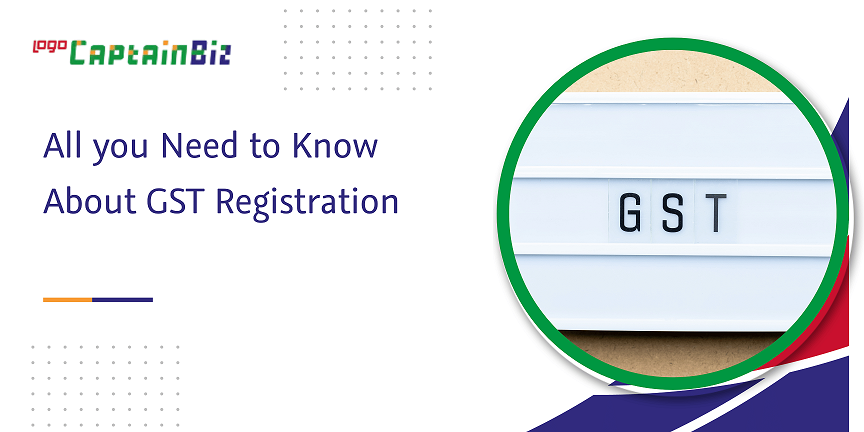The Ultimate Guide to Streamlining the GST Enrollment Process and Demands for Local Business Owners

Recognizing GST Basics
To grasp the principles of the Product and Provider Tax (GST) system, small service proprietors must first understand its underlying concepts and effects. GST is a value-added tax levied on most goods and solutions for residential usage. It aims to streamline the taxation procedure by changing several indirect taxes imposed by the state and main federal governments. Under the GST routine, organizations are called for to sign up and gather tax obligation on part of the government, guaranteeing transparency and conformity.
Among the key concepts of GST is input tax credit rating, which permits services to claim debt for tax obligations paid on their purchases. This device avoids the plunging effect of tax obligations and promotes efficiency in the tax obligation system. In addition, GST is a destination-based tax, suggesting that the tax is imposed at the point of intake instead of the point of origin. This makes certain fair circulation of tax earnings among states based upon where the items or services are eaten. Understanding these fundamental concepts is important for tiny business owners to browse the intricacies of the GST system and ensure compliance with the regulation.
Qualification Standards for Enrollment
Having actually developed a fundamental understanding of GST concepts, tiny business owners must now meet specific eligibility criteria to wage the enrollment procedure. In India, entities participated in the supply of products or services with an annual aggregate turn over going beyond Rs. 40 lakhs (Rs. 10 lakhs for unique group states) are called for to sign up for GST. Furthermore, specific services such as those associated with inter-state supply of goods, casual taxed individuals, and those needed to pay tax under the reverse charge mechanism have to sign up for GST irrespective of their turnover. Organizations that were signed up under the previous tax obligation program (VAT, service tax obligation, and so on) are also mandated to register under GST. However, farming organizations that just supply produce out of key manufacturing are exempt from GST enrollment. It is vital for local business owner to meticulously evaluate their eligibility based on these standards to make sure compliance with the regulation and avoid any kind of charges for non-compliance.
Papers Needed for GST Enrollment

Simplified Enrollment Refine Actions
Complying with the collection and confirmation of the requisite records, the registration procedure for GST can be navigated through a series of streamlined actions designed to promote efficient compliance for little service proprietors. Upon effective confirmation, an Application Reference Number (ARN) is issued, suggesting the completion of the GST enrollment procedure. By adhering to these streamlined actions, tiny organization proprietors can successfully sign up for GST and make certain conformity with tax obligation laws.
Tips for Ensuring Conformity
To keep governing adherence and operational stability, thorough oversight and aggressive measures are pivotal in guaranteeing conformity with GST demands for tiny organization owners. Small company owners have to remain updated with GST regulations, filing due dates, and any kind of adjustments in tax obligation prices to stay clear of fines and maintain an excellent standing with tax obligation authorities. Participating in GST recognition workshops or training programs can boost understanding and conformity with GST guidelines, eventually profiting the service in the lengthy run.
Final Thought
Finally, local business owners have to recognize the essentials of GST, satisfy the eligibility criteria, collect essential records, and comply with the simplified registration procedure actions to make sure compliance. By find here simplifying the GST enrollment procedure and demands, local business proprietors can stay clear of penalties and run their businesses smoothly within the legal structure - Singapore GST Registration. It is essential for small company proprietors to stay informed and certified with GST guidelines to preserve an effective service operation
Tiny company proprietors seeking GST enrollment need to ensure they collect and submit the needed files to finish the registration procedure efficiently. The records required for GST enrollment usually consist of proof of organization registration or unification, PAN (Irreversible Account Number) card of the company identity, address and entity evidence of the promoters/partners/directors, photographs, address evidence of the area of company, financial institution account statements or terminated cheques, and authorization types. Participating in GST awareness workshops or training programs can boost understanding and compliance with GST guidelines, ultimately benefiting the organization in the long run.
By streamlining the GST registration process and needs, small organization owners can avoid charges and operate their services smoothly within the lawful framework. It is critical for small organization owners to remain compliant and educated with GST regulations to maintain an effective organization operation.